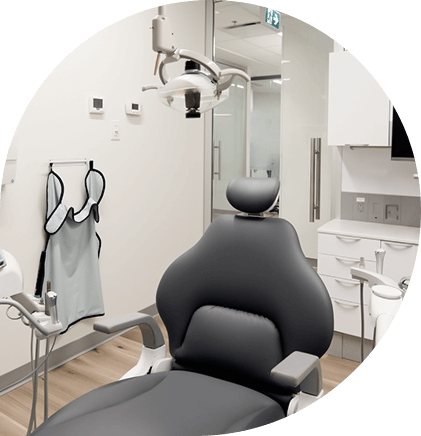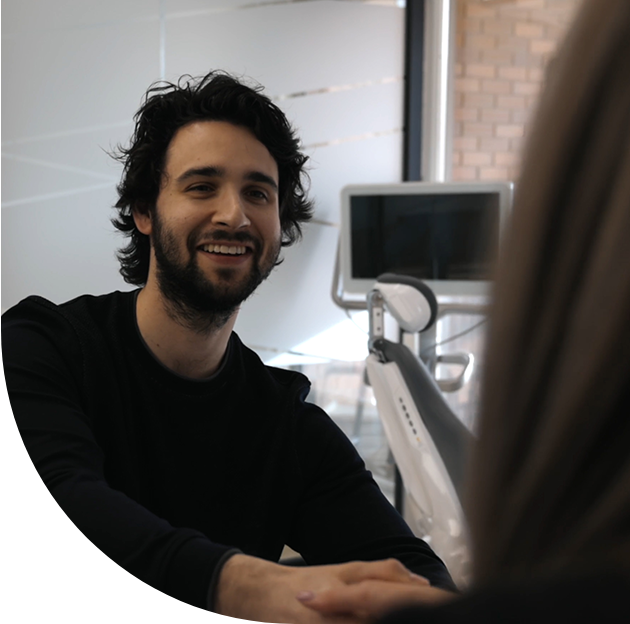Bleeding gums can be alarming, but how do you know when it’s a minor issue and when it signals a serious dental emergency? Many people experience gum bleeding occasionally, but persistent or severe bleeding may indicate an underlying condition that requires immediate dental care. At Stringham Dentistry in Edmonton, AB, we’re here to help you understand the causes of bleeding gums and when to seek professional treatment.
In this guide, we’ll cover:
- Common causes of bleeding gums
- When bleeding gums are a dental emergency
- How to stop gum bleeding at home
- Emergency dental treatments for bleeding gums
- Preventing gum issues in the future
Common Causes of Bleeding Gums
Bleeding gums can be caused by a variety of factors, ranging from mild irritation to serious infections. Below are some of the most common reasons your gums may be bleeding.
1. Poor Oral Hygiene and Plaque Buildup
When plaque isn’t removed properly, it hardens into tartar, which can irritate your gums and lead to gingivitis, the earliest stage of gum disease. Symptoms include:
- Red, swollen gums
- Bleeding during brushing or flossing
- Bad breath
2. Gingivitis and Periodontitis (Gum Disease)
If gingivitis is left untreated, it can progress into periodontitis, a severe gum infection that damages the soft tissues and bone supporting your teeth. Symptoms of periodontitis include:
- Persistent gum bleeding
- Receding gums
- Loose teeth
- Pus between teeth and gums
3. Brushing Too Hard or Using a Hard-Bristle Toothbrush
Aggressive brushing or using a hard-bristle toothbrush can damage your gums, causing irritation and bleeding. Switching to a soft-bristle toothbrush and using gentle brushing techniques can help prevent further damage.
4. Flossing Incorrectly or Too Infrequently
If you’ve just started flossing or are flossing too aggressively, you may notice your gums bleeding. However, if your gums bleed regularly even with proper flossing technique, it could be a sign of gum disease.
5. Vitamin Deficiencies
Deficiencies in vitamins C and K can weaken gum health and lead to excessive bleeding. A diet rich in fruits, vegetables, and leafy greens can help maintain strong gums.
6. Pregnancy Gingivitis
Pregnant women often experience hormonal changes that increase blood flow to the gums, making them more sensitive and prone to bleeding. This condition is known as pregnancy gingivitis.
7. Blood Disorders or Medications
Certain conditions like leukemia or medications such as blood thinners (e.g., aspirin, warfarin) can cause excessive gum bleeding. If you experience abnormal bleeding, consult your dentist or doctor immediately.
When Bleeding Gums Are a Dental Emergency
While occasional gum bleeding isn’t always a cause for concern, some situations require immediate dental attention. Here are the warning signs of a dental emergency:
1. Heavy or Persistent Bleeding That Won’t Stop: If your gums bleed excessively and don’t stop after applying pressure, this could be a sign of a serious infection or a blood clotting disorder.
2. Swollen, Red, or Painful Gums: Painful, swollen, or inflamed gums may indicate an advanced gum infection that requires urgent treatment.
3. Pus, Bad Breath, or an Abscess: The presence of pus, a foul taste in your mouth, or persistent bad breath suggests a severe gum infection or dental abscess, which needs immediate dental care.
4. Loose or Shifting Teeth: If your teeth start to feel loose or shift, you could have advanced periodontitis, a condition that can lead to tooth loss if left untreated.
5. Bleeding Gums After an Injury or Accident: If you experience trauma to your mouth (such as a fall or sports injury) and your gums won’t stop bleeding, seek emergency dental care immediately.
How to Stop Gum Bleeding at Home
If your gums start bleeding suddenly, here are a few steps to help manage the situation before seeing a dentist:
- Apply Pressure – Use a clean gauze pad or a damp tea bag to apply gentle pressure to the bleeding area.
- Rinse with Salt Water – A saltwater rinse can help reduce inflammation and promote healing.
- Use a Cold Compress – Applying a cold compress to the outside of your cheek can reduce swelling and slow bleeding.
- Avoid Smoking and Alcohol – These substances can irritate your gums and make the bleeding worse.
- Switch to a Soft-Bristle Toothbrush – Hard bristles can cause further damage; opt for a soft-bristle brush and brush gently.
If bleeding persists despite these steps, it’s time to visit Stringham Dentistry in Edmonton.
Emergency Dental Treatments for Bleeding Gums
At Stringham Dentistry, we provide expert treatment for bleeding gums and related conditions. Depending on the severity of your condition, we may recommend:
1. Professional Dental Cleaning: A deep cleaning, known as scaling and root planing, removes plaque and tartar buildup to prevent further gum irritation and bleeding.
2. Antibiotic Therapy: If you have a gum infection, antibiotics may be prescribed to eliminate bacteria and reduce inflammation.
3. Gum Disease Treatment: For patients with advanced periodontitis, specialized treatments such as laser gum therapy or surgical intervention may be necessary.
4. Tooth Extraction or Gum Surgery: In severe cases, gum surgery or tooth extraction may be needed to prevent the spread of infection.
How to Prevent Bleeding Gums in the Future
To maintain healthy gums and avoid dental emergencies, follow these simple steps:
- Brush Twice a Day – Use fluoride toothpaste and a soft-bristle toothbrush.
- Floss Daily – Flossing removes plaque buildup between teeth and along the gumline.
- Eat a Balanced Diet – Include foods rich in vitamins C and K to strengthen your gums.
- Stay Hydrated – Drinking water helps wash away food particles and bacteria.
- Avoid Tobacco Products – Smoking and chewing tobacco increase your risk of gum disease.
- Visit Your Dentist Regularly – Schedule dental checkups every six months at Stringham Dentistry in Edmonton for early detection of gum issues.
Need Emergency Dental Care for Bleeding Gums? Contact Stringham Dentistry Today!
If you’re experiencing severe or persistent gum bleeding, don’t ignore the symptoms. It could be a sign of a serious dental issue that needs immediate attention. At Stringham Dentistry in Edmonton, AB, our expert team is here to provide urgent dental care and help restore your oral health.





